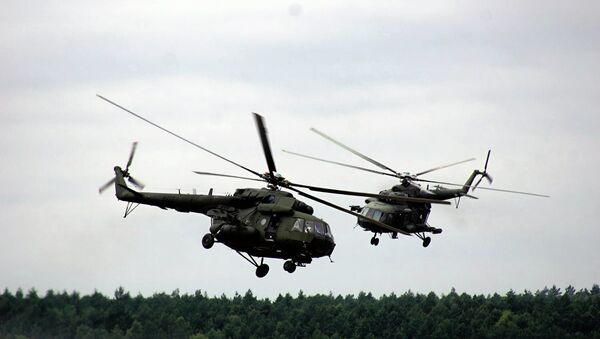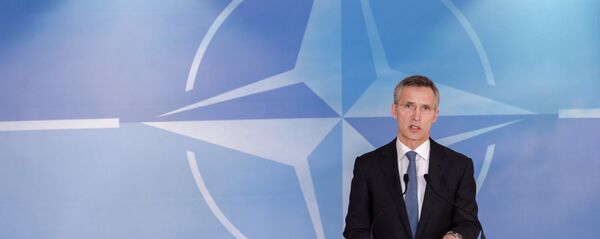WASHINGTON (Sputnik) — Russia has contended that the US pre-positioning of heavy equipment in former Soviet states violates the Russia-NATO Founding Act of 1997, which among other political agreements pledges that the Alliance will not permanently station substantial combat forces in Eastern and Central Europe.
“There are no troops permanently stationed in the east, only equipment. There is no violation of any agreement. The emplacement of pre-positioned equipment is not building permanent bases or having troops permanently based.”
The Russian Foreign Ministry has argued the pre-positioning amounts to permanent stationing of substantial combat forces near its border.
On Tuesday, US Defense Secretary Ash Carter announced the US will send to Eastern Europe tanks, artillery, armored vehicles and other equipment for a brigade-sized contingent, or about 5,000 soldiers.
The announcement came a day after Carter said the US would contribute special operation forces, intelligence and equipment to a NATO rapid response force.
Stavridis, currently the Dean of The Fletcher School of Law and Diplomacy at Tufts University, explained the pre-positioned military hardware is designed for US troops already based in Europe or the United States to use for training and enhanced combat readiness.
“This will improve combat readiness by having equipment already forward and the soldiers can then simply fly in aircraft to marry up with the equipment,” Stavridis explained, reiterating that no US troops will be permanently deployed with the equipment.
He noted the pre-positioning negates the need for lengthy logistical deployment of equipment for training or crisis response.
The Baltic states of Lithuania, Estonia and Latvia, as well as Poland, Romania and Bulgaria, have agreed to host the military hardware. The pre-position is designed to reassure the NATO members of the US commitment to their security amid concerns over alleged Russian aggression.
“It [pre-positioning] is a direct response to Russian aggression in Ukraine, and to the annexation of Crimea, which has made the Eastern Europeans very nervous for obvious historical and geopolitical reasons.”
Moscow views the annexation of Crimea as reunification after the largely ethnic Russian peninsula overwhelmingly voted in a referendum to join Russia in March 2014. The European Union and the United States deem the referendum and reunification illegal.
The pre-positioning announcement comes as Russia views NATO’s activities near its western border and development of an anti-ballistic missile system as provocative and destabilizing.
Last week, Russian President Vladimir Putin announced Russia would add 40 intercontinental ballistic missiles to its stockpile as he accused the United States of triggering a new Cold War style arms race. Russia may also consider increasing forces in its Baltic enclave of Kaliningrad.
Speaking in Europe on Tuesday, US Defense chief Carter said that while the US does not seek a renewed Cold War with Russia it will nonetheless stand by its NATO allies.


